
Sir Simon Michael Schama is an English historian and television presenter. He specialises in art history, Dutch history, Jewish history, and French history. He is a Professor of History and Art History at Columbia University.

Yachad is a non-governmental organization based in the United Kingdom. It describes itself as "pro-Israel, pro-peace".
Howard Eric Jacobson is a British novelist and journalist. He writes comic novels that often revolve around the dilemmas of British Jewish characters. He is a Man Booker Prize winner.

Jews' Court is a Jewish museum and Liberal Jewish congregation and synagogue, located on Steep Hill in Lincoln, Lincolnshire, England, in the United Kingdom. The building was listed as a Grade I building in 1953 and houses the headquarters of the Society for Lincolnshire History and Archaeology.
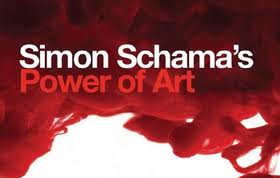
Simon Schama's Power of Art is an eight-part BBC TV mini-series examining the works of eight artists, the context surrounding one of their works and the message they intended to convey with these. It was written, created, narrated, and presented by Simon Schama. The series was first broadcast in October 2006 on BBC2, and was aired in multiple countries from 2006 to 2008, even being translated to Persian and Italian. The series is presented in chronological order with the oldest artists being the earliest episodes and the most recent artists being the last episodes. The series looks at the following artists and works:
- Caravaggio – David with the Head of Goliath
- Bernini – Ecstasy of Saint Teresa (1657)
- Rembrandt – The Conspiracy of Claudius Civilis (1662)
- David – The Death of Marat (1793)
- Turner – The Slave Ship (1840)
- Van Gogh – Wheatfield with Crows (1890)
- Picasso – Guernica (1937)
- Rothko – Black on Maroon (1958)
David Belton is a director, writer, and film producer. His experiences as a BBC reporter covering the 1994 Rwandan genocide led him to write the original story and produce the film Shooting Dogs, directed by Michael Caton-Jones, which dramatizes the events at the Ecole Technique Officielle. It was retitled Beyond the Gates for its 2007 U.S. release. He has directed documentaries and drama-documentaries and documentaries for PBS and dramas for the BBC. His book, When the Hills Ask for Your Blood was published in January 2014 by Doubleday.

Daisy Georgia Goodwin is an English screenwriter, TV producer and novelist. She is the creator of the ITV/ PBS show Victoria which has sold to 146 countries. She has written four novels: My Last Duchess or The American Heiress, The Fortune Hunter, Victoria, and “Diva”; all of which have been New York Times bestsellers and have been translated into more than ten languages. She has also curated eight poetry anthologies, including 101 Poems That Could Save Your Life. Goodwin spent twenty-five years working as a TV producer, where she created and produced shows like Grand Designs which has now been on Channel 4 for more than twenty years, and Escape to the Country which is in its twentieth year on BBC2.

Cush Jumbo is a British actress and writer. She is best known for her leading role as attorney Lucca Quinn in the CBS drama series The Good Wife (2015–2016) and the Paramount Plus spin-off series The Good Fight (2017–2021) and most recently June Lenker in the Apple TV+ series Criminal Record (2024).

The Village is a BBC television series written by Peter Moffat. The drama is set in a Derbyshire village in the early 20th century. The first series of what Moffat hoped would become a 42-hour televised drama following an extended family through the 20th century, was broadcast in spring 2013 and covered the years 1914 to 1920. A second series was broadcast in autumn 2014, and continued the story into the 1920s. The programme did not return after the second series.

The Invention of the Jewish People is a study of Jewish historiography by Shlomo Sand, Professor of History at Tel Aviv University. It has generated a heated controversy. The book was on the best-seller list in Israel for nineteen weeks.
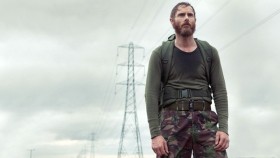
Southcliffe is a British drama series that aired on Channel 4. Set in a fictional town on the North Kent Marshes, it employs a nonlinear narrative structure to tell the story of a series of shootings by a local man portrayed by Sean Harris, the cause of the shootings and the effects on the town and residents. The series explores tragedy, grief, responsibility and redemption as seen through the eyes of a journalist returning to the small town of his childhood to cover the story.
The Mill is a 2013 period television drama broadcast on Britain's Channel 4. It was developed by Emily Dalton using stories from the archives of the National Trust Property. It is based on real-life stories and people of the textile mill workers at Quarry Bank Mill in Cheshire, England, combined with fictional characters and events. The programme is also filmed in Cheshire.

Wolf Hall is a British television series adaptation of two of Hilary Mantel's novels, Wolf Hall and Bring Up the Bodies, a fictionalised biography documenting the life of Thomas Cromwell.
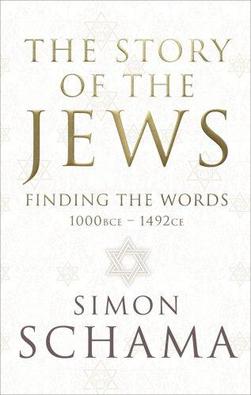
The Story of the Jews: Finding the Words, 1000 BCE–1492 CE is a book by the British historian Simon Schama, which is being published in three volumes. The first volume, entitled Finding the Words, 1000BCE – 1492CE, was published in the United Kingdom by The Bodley Head in September 2013. The second volume, entitled Belonging: The Story of the Jews, 1492–1900, was published by The Bodley Head in October 2017.
Season 26 of the television program American Experience was originally shown on the PBS network in the United States from January 7, 2014, and concluded on November 18, 2014. The season contained seven new episodes and began with the film The Poisoner's Handbook.
Verity Marina Marshall is an English actress best known for her roles as Helen in BBC medical drama Holby City, Amy in the White Christmas episode of the Netflix series Black Mirror and Samantha in the BBC six-part drama Press.

Civilisations is a 2018 British art history television documentary series produced by the BBC in association with PBS as a follow-up to the original 1969 landmark series Civilisation by Kenneth Clark. Individual episodes are presented by Simon Schama, Mary Beard, and David Olusoga, with music composed by Tandis Jenhudson. The PBS release differs in several respects, including series narration by Liev Schreiber.
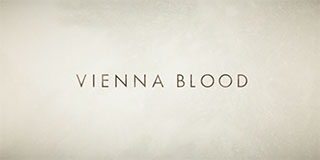
Vienna Blood is a British-Austrian procedural drama television series set in Vienna, Austria, in the early 1900s. Based on the Liebermann novels by Frank Tallis, the series follows Max Liebermann, a doctor and student of Sigmund Freud, as he assists Police Detective Oskar Rheinhardt. By providing psychological insights into the subjects’ motives, they investigate disturbing murders with success. A continuing sub-theme is the growing antisemitism against the Liebermann family. Max is a member of a liberal British Jewish family in Leopoldstadt, a traditional Jewish district, while Oskar, a lapsed Catholic, is based at that district's police precinct.
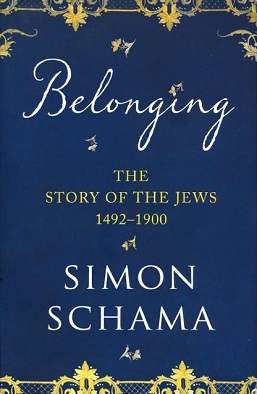
Belonging: The Story of the Jews, 1492–1900, Volume 2 is a 2017 book by Simon Schama on the cultural history of the Jewish people. Belonging is the second volume of Schama's Story of the Jews, the first being The Story of the Jews:Finding the Words, 1000BCE – 1492CE. Belonging was published by Penguin Random House in October 2017.
Ridley Road is a British four-part television drama series which premiered on BBC One on 3 October 2021, about Jewish opposition to British Fascism in the 1960s. It was adapted by Sarah Solemani from Jo Bloom's 2014 novel of the same name. The series is directed by Lisa Mulcahy and the executive producer is Nicola Shindler.













